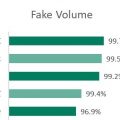
One of the largest exchanges for cryptocurrency trading, Coinbase, blogged about the many requestsreceived from financial regulatorsdifferent countries in 2020. From January to June, departments 1,914 times approached the marketplace with a requirement to provide information about customer accounts and other information. At the same time, 96.6% of requests were sent within the framework of criminal investigations. The company emphasized that they cannot refuse to transfer information if the request has a legal basis, writes RBC Crypto.
Coinbase noted 58% of queries in 2020came from the USA, where the FBI was most often interested in data on traders. The second and third places in terms of the number of requests were taken by Great Britain and Germany. Russia is not listed among the countries that requested Coinbase customer data.
When exchanges can transfer data to authorities
In accordance with international recommendationsFATF, operators of virtual asset services, including crypto exchanges, must collect data on participants in transactions with such assets. But sites are required to transfer this information to the authorities only if there are grounds established by law, such asthe court's decision, said Yuri Brisov, member of the commission on legal support of the digital economy of the Moscow branch of the Russian Lawyers' Association.
"Providing customer datalaw enforcement agencies are only possible on a legal basis. Most jurisdictions require a court order to disclose customer data. If there is no legal basis, law enforcement agencies have no right to require the disclosure of customer data. Accordingly, the exchanges in such cases have every right to refuse "- explained Brisov.
Crypto exchanges can share information with authoritiesin at least two more cases, added Roman Yankovsky, IP/IT practice advisor at Tomashevskaya&Partners, teacher at Moscow Digital School. One of them he called the presencea request sent through official government channels such as Interpol. Another scenario involvescooperation on a voluntary basis.
Where do the powers of the Russian authorities end?
At sites located outside the Russianjurisdiction, there are no formal obligations to provide data to Russian law enforcement agencies, Yankovsky continued. But he recalled that the law on digital financial assets (DFA) will come into force in 2021. According to the document, exchange operators registered in accordance with the law, that is, exchanges, will be required to provide dataat the request of law enforcement agencies and by court decision.
Regulation of cryptocurrencies will be ensured anda separate document "On digital currency". It has not yet been adopted, but if it comes into force, it will also oblige Russian crypto exchanges to provide information to law enforcement agencies, Yankovsky added.
At the same time, Brisov noted that the workforeign trading platforms in Russia are currently not legalized, so companies may have no reason to cooperate with Russian regulators even after the entry into force of the law "On CFA".
"The legal status of crypto-exchanges in Russiais a big question. Recent changes in the law "On CFA" actually made it impossible for Russian citizens to participate in the circulation of cryptocurrencies. Thus, it is generally unclear how foreign exchanges can legally operate in Russia. Therefore, it is not entirely clear why foreign exchanges should comply with the requests of Russian law enforcement agencies ", - believes Brisov.
At the end of September, the head of the State Duma committee onTo the financial market, Anatoly Aksakov said that the decision on amendments to the law on digital financial assets regarding the regulation of cryptocurrencies will be made in about a month. The deputy said that in addition to the proposals of the Ministry of Finance, which imply strict restrictions on transactions with digital money, there are other options that also require consideration.

Rate this publication




